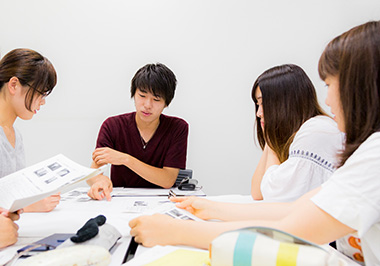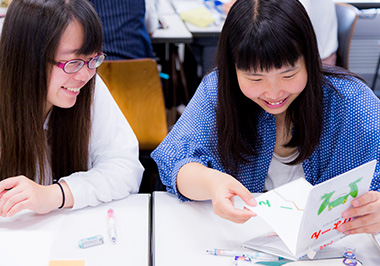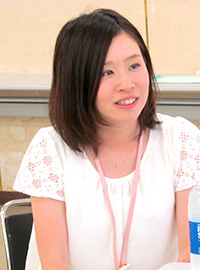Links
Social Work
Social Work
Tackling diverse issues of social services in the modern society
Social work is an academic field that pursues theories and ways to encourage individuals, groups and the society so that all people will be given respect and change their lives for the better. This division prompts proactive learning and offers a learning environment for students to acquire practical knowledge. It also offers diverse practice opportunities each year with an emphasis on direct involvement with welfare service beneficiaries so that students can refine their problem identification and problem-solving skills. Through the programs, students aspire to become competent social workers who can work together with diverse professions while also demonstrating their expertise, or become contributing members of society to utilize their knowledge on social welfare in a wide array of fields. Alumni career paths are very diverse. SPU Division of Social Work alumni have been employed in the following fields and demonstrate their capabilities acquired at SPU: the children & family support field such as the family court and child guidance center; the consultation and lifestyle support field for children, the elderly and persons with disabilities; public administration in the Japanese government, prefectures and municipalities; the medical welfare and psychiatric social welfare fields such as general hospitals and psychiatric hospitals; the regional social welfare field such as in social welfare councils and non-profit organizations; and companies in various industries including pharmaceutical, medical equipment, housing, beauty and education.

After learning the basics of social work, students choose their curriculum tracks according to their interests.
"Specialized Social Work Practice" and "Thesis" offered in the junior and senior years and courses of health and social services covering interprofessional collaboration offered throughout the four years cultivate capabilities to collaborate with other professions, in addition to expertise in social work.
Child Science
Child Science
Developing specialists who create futures for children
The environment surrounding children is rapidly changing in Japan in response to the lower birth rates and aging population. Teachers are also confronted with more personalized issues from children and households with serious concerns and difficulties. In addition to the knowledge and know-how for education and childcare, it is imperative to acquire the knowledge and know-how necessary to work with social workers and institutions involved with children to fully assure child development. Furthermore, teachers are not only required to lead children's issues into resolution, but also expected to grasp the issues of the local community and create a new desirable environment for children. The Child Science Division develops professionals who will play a central role for childcare in such ever-changing times, and offers subjects required to become kindergarten and nursery school teachers in addition to the basic subjects for social care. Students also acquire practical skills through education and childcare practice sessions, and hopefully become specialists of child support with training in social work.

The characteristic of the Child Science Division's curriculum is its focus on social welfare knowledge. For the freshman year, students acquire broad knowledge on health and social services through specialized subjects and basic specialized subjects to approach issues on children from multifaceted perspectives. Practical courses necessary for aspiring kindergarten and nursery school teachers start in the sophomore year. Students refine their child care know-how through practicum in a mock nursery room. For the junior year, students concentrate on their areas of interest while also working on their expertise. Seniors work on their thesis and participate in seminars consistent with their themes.
Qualifications that can be acquired
Qualifications that can be acquired
Examination pass rates
Examination Pass Rates
Social Work Division
2018 National Social Worker Examination Pass Rate:
75.4%(National average:55.5%)
2018 National Psychiatric Social Worker Examination Pass Rate (Not more than 10 students per year, not including students who transferred into SPU junior year)
90.0%(National average:82.4%)
Messages from students and alumni
Messages from students and alumni

Minami Akamatsu
Department of Social Work and Child Science (Social Work) Class of 2014
Read more (Japanese)

Kana Tanaka
Department of Social Work and Child Science (Child Science) Class of 2014
Read more (Japanese)